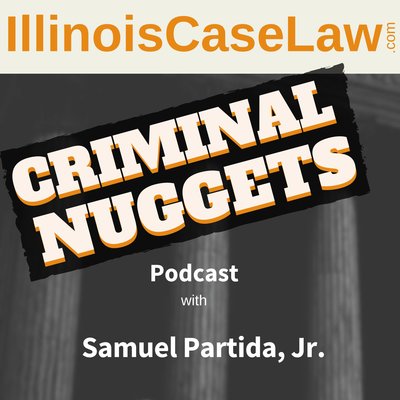Oct 23, 2014
http://IllinoisCaseLaw.com/juvenile-court-sentencing/
Juvenile court sentencing in Illinois has just received a more level playing field. Episode 022 of the Criminal Nuggets Podcast mentions how not to long ago, an accused minor in juvenile court could only receive court supervision if the prosecution “Ok'd” it. A judge could not give that sentence if the State objected to it. The prosecution had a unilateral veto.
\\\\\\\\\\\\\\\\\\\\\\\\\\\\\\\\\\\\\\\\\\\\\\\\\\\\\\\\\\\\\\\\\\\\\\\\\\\\\\\\\\\\\\\\\\\\\\\\\\\\\\\\\\\\
Not any more. A change in the Illinois Compiled Statutes Juvenile Court Act now allows a judge to sentence a juvenile offender to court supervision if it is the right thing to do.
The law allows a judge in juvenile court sentencing to make a finding of delinquency after the State voices an objection to the minor receiving court supervision. Then the judge may consider...
“...the circumstances of the offense and the history, character, and condition of the minor, if the court is of the opinion that:
(i) the minor is not likely to commit further crimes;
(ii) the minor and the public would be best served if the minor were not to receive a criminal record; and
(iii) in the best interests of justice an order of continuance under supervision is more appropriate than a sentence otherwise permitted under this Act.”
705 ILCS 405/5-615(2). http://www.ilga.gov/legislation/ilcs/fulltext.asp?DocName=070504050K5-615
This looks more complicated than it actually is in practice. When the State objects to a minor receiving court supervision, a normal sentencing hearing just takes place. The court has to balance the factors listed above in the normal way that would occur in any type of sentencing hearing where the parties don’t agree on the final sentence.
This change in the law was discussed in the Illinois case of In re Derrico, 2014 IL 114463 (08/04/2014).
http://illinoiscaselaw.com/court-supervision-in-juvenile-sentencing/ That case also discusses, some funny business going on in the Court.
Apparently, the judge really didn’t like the old rule and maybe had issued a term of supervision in a case even though the court knew, that at the time, it could not legally be done. While the case was on appeal, the law changed.
The appellate still sent the case back the trial court to make sure
the judge follows the new law as it is written.



